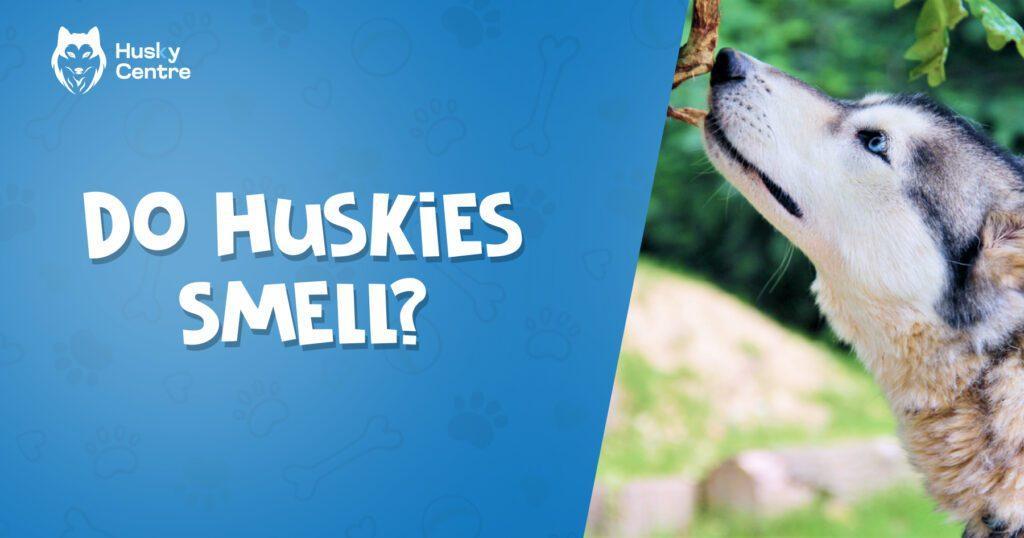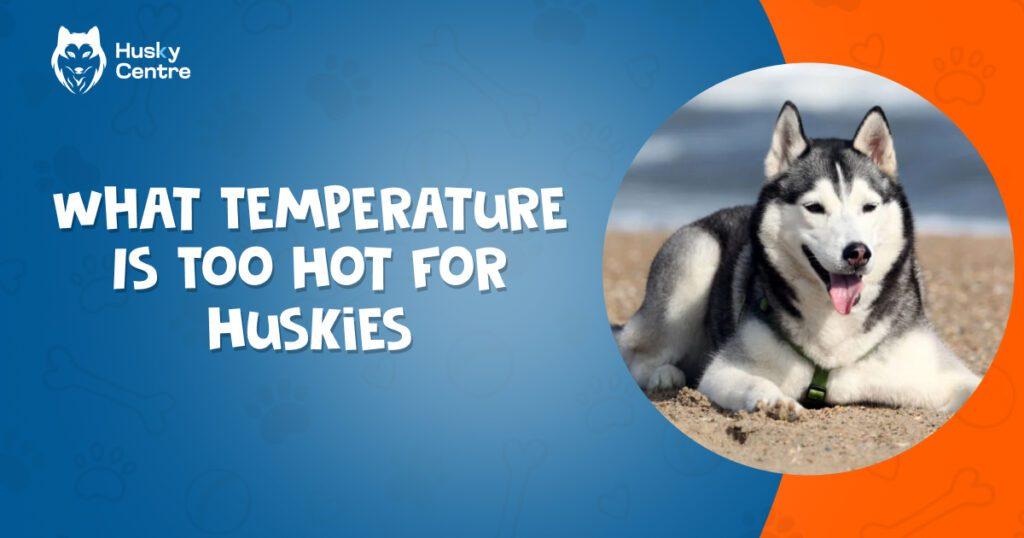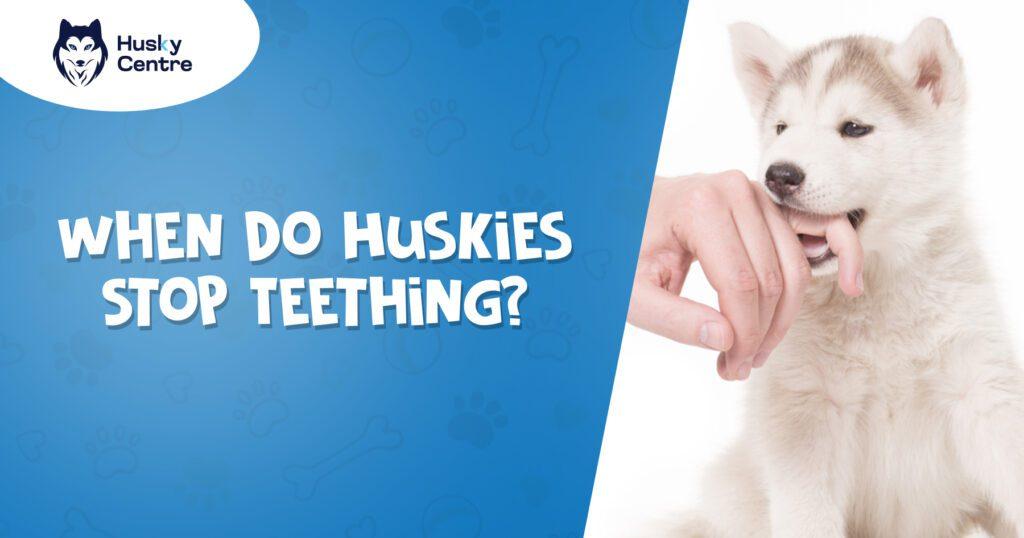Huskies typically do not have a strong odor. They are known for being a relatively clean breed.
Huskies are well-loved for their striking appearance and energetic nature. They have a double coat that sheds seasonally, which helps keep them clean. Regular grooming is essential to maintain their cleanliness and minimize any potential smell. Despite their active lifestyle, Huskies do not usually emit a strong odor like some other breeds.
Proper care, such as regular baths and brushing, ensures they stay fresh. Their natural cleanliness makes them a popular choice for families and individuals who prefer a dog with minimal odor. Overall, Huskies are a clean and low-odor breed, making them ideal pets for many households.
Understanding Husky Coat
Do Huskies smell? If you are curious about this, understanding the unique characteristics of a Husky’s coat can provide some answers. Huskies have a distinctive coat that plays a significant role in their hygiene and overall scent. This section will dive into the intricacies of the Husky coat.
Double Coat Structure
Huskies possess a double coat structure, which consists of two distinct layers. The undercoat is soft and dense, providing insulation, while the outer coat is longer and water-resistant. This unique combination helps Huskies stay warm during harsh winters and cool during the summer.
Here are the key features of a Husky’s double coat:
- Undercoat: Soft and fluffy, this layer traps heat close to the body.
- Outer coat: Coarser and longer, it repels water and dirt.
A table illustrating the differences between the two coat layers:
| Coat Layer | Texture | Function |
| Undercoat | Soft and Dense | Insulation |
| Outer coat | Coarse and Long | Protection |
The double coat structure reduces the likelihood of a Husky smelling bad. The outer coat helps keep dirt and moisture away from the skin, while the undercoat provides necessary insulation.
Seasonal Shedding Patterns
Huskies experience seasonal shedding, which is also known as “blowing their coat”. This typically occurs twice a year, in spring and fall. During these periods, Huskies shed their undercoat to prepare for the upcoming seasonal changes.
Some key points about seasonal shedding:
- Spring shedding: Huskies shed their winter undercoat to prepare for warmer weather.
- Fall shedding: They shed their summer coat to make way for a thicker winter coat.
This shedding process can last for several weeks and can be quite intense. Regular grooming during these periods is essential to manage the shedding and keep your home clean.
Shedding does not necessarily cause a Husky to smell bad. In fact, regular grooming and brushing can help remove loose fur and reduce any potential odor.
Role Of Natural Oils
The Husky coat contains natural oils that play a vital role in maintaining its health and cleanliness. These oils are produced by the skin and help keep the coat shiny and waterproof.
Here are the benefits of natural oils in a Husky’s coat:
- Moisturization: Natural oils keep the skin and coat moisturized, preventing dryness and flakiness.
- Water resistance: These oils make the outer coat water-resistant, helping to repel dirt and moisture.
- Odor control: Natural oils can help control odor by preventing the buildup of bacteria and other microorganisms.
Regular grooming and bathing are important to maintain the balance of these natural oils. Over-bathing can strip the coat of its natural oils, leading to dryness and potential odor issues. Aim for a balanced grooming routine to keep your Husky’s coat healthy and smelling fresh.
Common Causes Of Odor In Huskies
Huskies are known for their striking appearance and energetic nature, but many owners wonder, do Huskies smell? Understanding the common causes of odor in Huskies can help maintain a fresh-smelling and healthy pet. Various factors contribute to why a Husky might develop an unpleasant scent. Below are the most frequent causes.
Infrequent Grooming
Proper grooming is essential for Huskies. Infrequent grooming can lead to odor build-up. Huskies have a double coat that can trap dirt, oils, and debris.
- Brushing: Regular brushing helps remove loose fur and dirt. Aim to brush your Husky at least twice a week.
- Bathing: Bathing should be done every 3-4 months. Over-bathing can strip natural oils, leading to dry skin and more odor.
- Ear Cleaning: Clean your Husky’s ears monthly to prevent infections, which can cause a bad smell.
- Teeth Brushing: Brush their teeth weekly to avoid bad breath and dental issues.
Neglecting these grooming tasks can cause your Husky to smell. Consistent grooming routines can help keep your pet smelling fresh.
Skin Conditions
Skin conditions are another common cause of odor in Huskies. Huskies can suffer from various skin issues, including allergies and infections.
- Allergies: Allergies can cause itching and scratching, leading to open sores and infections. This can result in a bad odor.
- Yeast Infections: Yeast infections can produce a musty smell. They often occur in warm, moist areas like the ears and paws.
- Bacterial Infections: Bacterial infections can cause skin irritation and odor. These require veterinary treatment.
Regular vet check-ups and proper hygiene can help manage these skin conditions. Use hypoallergenic shampoos and medications if needed.
Dietary Influences
Diet plays a crucial role in your Husky’s overall health and can affect their smell. Poor diet can lead to bad breath, skin issues, and digestive problems.
- Quality Food: High-quality dog food can improve coat health and reduce odor. Look for food with natural ingredients and essential nutrients.
- Hydration: Ensure your Husky drinks enough water. Proper hydration aids digestion and keeps skin healthy.
- Supplements: Omega-3 fatty acids can improve coat and skin health. Consult your vet for the best supplements.
A balanced diet can significantly reduce the risk of odor in Huskies. Avoid giving your pet table scraps and unhealthy treats.
Environmental Factors
Environmental factors also contribute to your Husky’s smell. Huskies are active dogs and can pick up odors from their surroundings.
- Outdoor Activities: Huskies love to play outside. Dirt, mud, and grass can cling to their fur, causing odor.
- Living Conditions: Keep your home clean. Wash your Husky’s bedding regularly to prevent odor build-up.
- Humidity: High humidity can make your Husky’s coat smell musty. Ensure proper ventilation in your home.
Regularly cleaning your Husky and their living space can help manage environmental odors. Pay attention to where your Husky spends time and clean those areas frequently.
Preventive Measures And Grooming Tips
Huskies are known for their striking appearance and vibrant energy. Many wonder, “Do Huskies smell?” While Huskies generally have a clean odor, proper grooming and preventive measures are crucial to maintaining their freshness. Let’s delve into some essential grooming tips and preventive measures to keep your Husky smelling pleasant.
Regular Brushing Techniques
Regular brushing is vital for a Husky’s coat. Huskies have a double coat, which means they shed a lot, especially during shedding seasons. Brushing helps remove loose fur and prevents matting.
Here are some effective brushing techniques:
- Brush daily during shedding seasons: Use a slicker brush or an undercoat rake to remove loose fur.
- Start from the head and move down: Brush in the direction of hair growth to avoid discomfort.
- Check for tangles: Address tangles gently with a comb to prevent matting.
- Use short, gentle strokes: This helps to avoid pulling on the skin.
Regular brushing not only keeps your Husky clean but also minimizes shedding around the house.
Bathing Frequency And Methods
Bathing your Husky is another crucial aspect of grooming. Too frequent baths can strip the natural oils from their coat, leading to dryness and irritation. Aim for a bath every 3-4 months unless they get particularly dirty.
Follow these steps for a successful bath:
- Use lukewarm water: Ensure the water is comfortable for your Husky.
- Choose a dog-friendly shampoo: Opt for one that is gentle and designed for Huskies.
- Wet the coat thoroughly: Make sure the water reaches the undercoat.
- Lather the shampoo: Work it into the fur, focusing on areas prone to dirt and odor.
- Rinse thoroughly: Ensure no shampoo residue is left, as it can cause skin irritation.
- Dry completely: Use a towel or a pet dryer to prevent damp odor.
Ear And Dental Care Routines
Ear and dental care are often overlooked but are essential for a Husky’s hygiene. Regular ear cleaning helps prevent infections and unpleasant odors. Dental care ensures fresh breath and overall health.
For ear care:
- Check ears weekly: Look for redness, dirt, or a foul smell.
- Use a vet-approved ear cleaner: Apply a few drops and gently massage the base of the ear.
- Wipe with a cotton ball: Clean the outer ear without inserting anything deep inside.
For dental care:
- Brush teeth regularly: Aim for at least 3 times a week using a dog toothbrush and toothpaste.
- Provide dental chews: These help reduce plaque and tartar buildup.
- Schedule professional cleanings: Your vet can perform thorough cleanings as needed.
Recommendations For A Balanced Diet
A balanced diet plays a significant role in your Husky’s overall health and smell. The right nutrition can enhance their coat’s shine and reduce odor.
Consider these dietary tips:
- High-quality dog food: Choose food rich in proteins, vitamins, and minerals.
- Omega-3 fatty acids: These promote a healthy coat and skin, reducing odors.
- Avoid fillers and artificial additives: These can cause digestive issues and bad breath.
- Regular feeding schedule: Maintain consistency to keep their digestive system healthy.
Here is a sample diet plan:
| Meal | Ingredients |
| Breakfast | High-quality kibble with added fish oil supplement |
| Lunch | Cooked chicken breast with steamed vegetables |
| Dinner | Kibble with a mix of lean meat and brown rice |
Maintaining a balanced diet ensures your Husky remains healthy and odor-free.
Addressing Specific Odor Issues
Huskies are known for their striking appearance and energetic nature, but do they smell? Many dog owners worry about specific odor issues. Understanding these concerns helps keep your husky smelling fresh and healthy. Below, we address the most common odor issues husky owners encounter.
Common Causes Of Husky Odor
Huskies, like any other dog breed, can develop odors. Common causes include:
- Dirty Coat: Huskies have thick fur that can trap dirt and sweat.
- Poor Dental Hygiene: Bad breath from dental problems can contribute to overall odor.
- Ear Infections: Moisture and bacteria in the ears can produce a foul smell.
Bathing Frequency
Bathing your husky regularly keeps odors at bay. Huskies typically need a bath every few months. Over-bathing can strip natural oils, leading to dry skin. Use dog-specific shampoos to maintain coat health.
Proper Grooming
Regular grooming minimizes odor. Brush your husky’s coat weekly to remove loose fur and dirt. Pay attention to areas prone to matting, as trapped moisture can cause smells. Grooming also reduces shedding.
Dental Care
Maintaining your husky’s dental hygiene is crucial. Brush their teeth several times a week using canine toothpaste. Provide dental chews and toys to help clean their teeth and freshen their breath.
Ear Cleaning
Check your husky’s ears weekly for signs of infection. Clean their ears with a vet-approved solution to prevent bacteria buildup. Avoid inserting anything deep into the ear canal.
Diet And Nutrition
A balanced diet impacts your husky’s overall health and odor. Feed them high-quality dog food rich in essential nutrients. Poor nutrition can lead to skin issues and bad breath.
Medical Issues
Persistent odors may indicate underlying health problems. If your husky smells despite good hygiene, consult your vet. Conditions like skin infections, allergies, or gastrointestinal issues may be the cause.
Frequently Asked Questions
Why Is My Husky So Smelly?
Your husky might be smelly due to poor grooming, skin infections, dental issues, or diet. Regular baths, vet check-ups, and proper nutrition can help.
Are Huskies Clean Dogs?
Yes, huskies are clean dogs. They groom themselves regularly and have minimal odor. Their double coat sheds dirt easily.
What Smell Do Huskies Hate?
Huskies usually hate the smell of citrus fruits. They also dislike vinegar and strong cleaning agents. These scents can deter them.
What Are The Cons Of Having A Husky?
Huskies shed heavily and need constant grooming. They are highly energetic and require lots of exercise. Their strong prey drive can be challenging. Huskies are known for being escape artists, requiring secure fences. They can be stubborn and difficult to train.
Conclusion
Huskies generally have a mild scent, often described as clean and natural. Proper grooming and regular baths can minimize any odors. Their double coat helps resist dirt and moisture, making them less smelly than other breeds. Embrace your Husky’s unique traits and enjoy their company without worrying about unpleasant smells.


Meet Jarred, the heart and soul behind HukyCentre. With a deep affection for furry friends, he pours his passion into every word he writes. His genuine love for dogs shines through in his engaging and informative content. As a dedicated dog enthusiast, Jarred’s goal is to share valuable insights and tips that resonate with fellow dog lovers. Join Jarred on the journey as he celebrates the joy and companionship that dogs bring into our lives.



